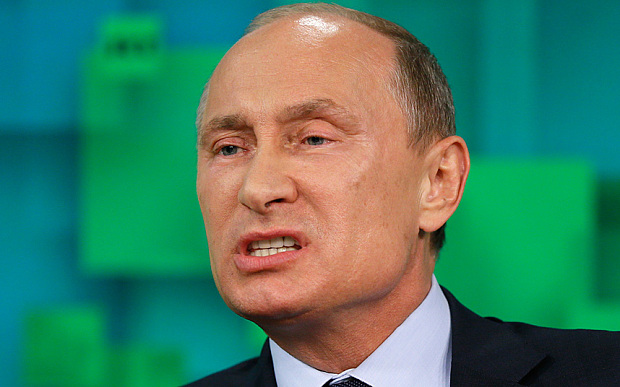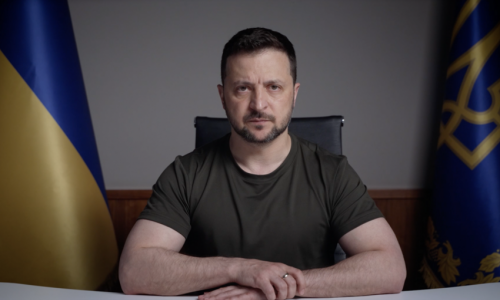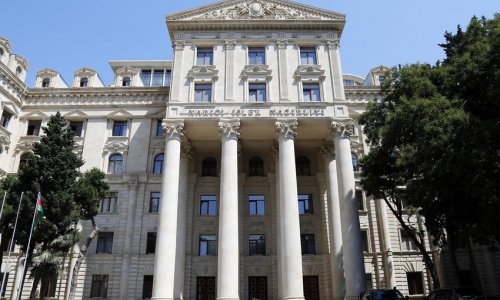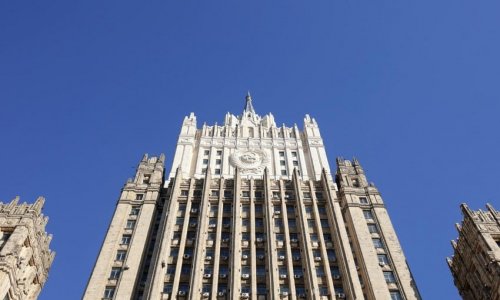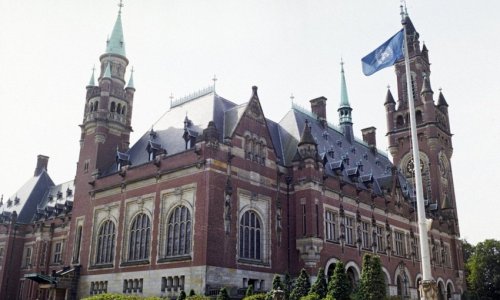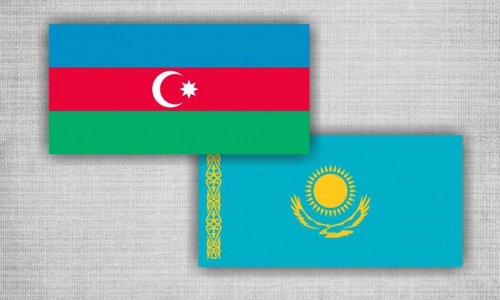By Josh Cohen
As the crisis over Turkey's downing of a Russian Su-24 jet drags on, the Kremlin continues to threaten Turkey. President Vladimir Putin promised "significant consequences," while Putin's spokesman warned that the Russian president was "fully mobilized." Russia even moved advanced S-400 anti-aircraft missiles to Syria, with the clear implication that they could be used to shoot down Turkish planes.
While Putin's military rhetoric may sound ominous, one Russian warning makes no sense whatsoever: Putin's threat to cancel major Russian pipeline and energy projects in Turkey. If implemented, these sanctions would cause far more economic and geopolitical harm to Russia than to Turkey - which completely defeats the point of introducing sanctions. In addition to hurting Russia, the sanctions would also force Europe to remain hostage to conditions of the Moscow-Kiev relationship. Russia uses gas as a weapon to maintain influence over its neighbors, and Europe is also affected by these Kremlin power plays.
To understand the foolishness of Putin's threats, it's necessary to understand the geopolitics involved. As part of its effort to punish Turkey, Russia just suspended work on its TurkStream natural gas pipeline, which would have pumped Russian gas into southeastern Europe, via Turkey, bypassing Ukraine. TurkStream is just one pawn in Russia's ongoing game of "pipeline politics," a longtime effort to end its dependence on Ukraine as a transit country through which to ship Gazprom's gas to European customers.
Given the ongoing conflict in the Donbas and the collapse of the relationship between Kiev and Moscow, Russia's desire to bypass Ukraine is not surprising. While Russia can shut off gas to Ukraine whenever it wants, Kiev has its own trump card: the ability to cut off Russia's access to core European customers through Ukraine's pipeline network.
So to reach Western Europe directly, Russia implemented the so-called Nord Stream -1 project, an underwater pipeline that ships Russian gas directly to Germany. After the European Union pushed back on South Stream, a complementary pipeline, Russia abandoned the project. It then teamed up with Turkey to develop TurkStream.
In September, Russia found another way to bypass Ukraine. Despite ongoing tensions between Russia and the West, Gazprom and various European energy companies such as Shell, Eon and BASF signed an agreement for construction of the Nord Stream-2 project. This pipeline, which traverses the same route under the Baltic Sea as Nord Stream-1 and doubles Nord Stream-1's capacity, also bypasses Central and Eastern Europe. The additional volume would allow Russia to largely free itself from dependence on Ukraine's pipeline network.
Unfortunately for the Russians though, it appears as though Nord Stream-2 is also going south. It now faces severe opposition in Central and Eastern Europe, and is likely to be vetoed by regulators in Brussels.
The end of South Stream as well as the likely demise of Nord Stream-2 makes Putin's decision to terminate TurkStream a Russian "own goal." While Turkey will lose transit revenue, Russia is now back to square one - still heavily dependent on Ukraine with no alternative transit prospects in the works.
While this may seem like a "loss" for Russia and a "win" for the West, Europe should not be too quick to celebrate, as what happens in Ukraine does not necessarily stay in Ukraine. The European Union obtains approximately 25 percent of its gas via Ukraine, and six member states are entirely dependent on Russian gas. This means that when Moscow plays the gas card with Kiev - as it did in 2006 and 2009 when it shut off all gas supplies to Ukraine in the dead of winter - Europe also shivers. So while Russia loses big from the demise of TurkStream, South Stream and Nord Stream-2, Europe takes a hit as well.
Moscow's threat to terminate a huge nuclear power plant project in Turkey would also hurt Russia far more than Turkey if implemented. The project dates back to 2010, when the Russian nuclear power company Rosatom signed a $20 billion contract with the Turks to build four new nuclear reactors in the country.
This deal provides numerous advantages for Russia. First, it allowed Rosatom to both control the planned power plants and sell the electricity they would generate - an arrangement long sought by the Russians. It also offers Russia entrée to the fast-growing Turkish economy, the largest in the Middle East. With Turkish electricity demand projected to grow 7 percent per year through 2023, Russia would be leaving a lot of money on the table.
Finally, because the contract called for Russia to maintain full control over the plants' operation - including the highly enriched uranium byproduct - Russia prevents Turkey from acquiring fissile materials for a nuclear weapon, and so limits the risks of proliferation by a powerful neighboring state. All of these benefits - plus the $3 billion already spent by the local Rosatom management company - would go down the drain if Putin cancels the project.
Turkey, by contrast, will suffer only short-term inconvenience should Putin terminate the project. While it would take some time to arrange, if Turkey wishes to continue its pursuit of nuclear power, it will find many other willing suitors, as companies like France's Areva, the United States' Westinghouse and Japan's Mitsubishi would surely welcome the opportunity to enter a fast-growing new market like Turkey.
Lenin himself said, "spite in general plays the very worst role in politics." Putin's ill-considered plan for an energy war against Turkey demonstrates this maxim in spades.
(Reuters)
www.ann.az
Follow us !

